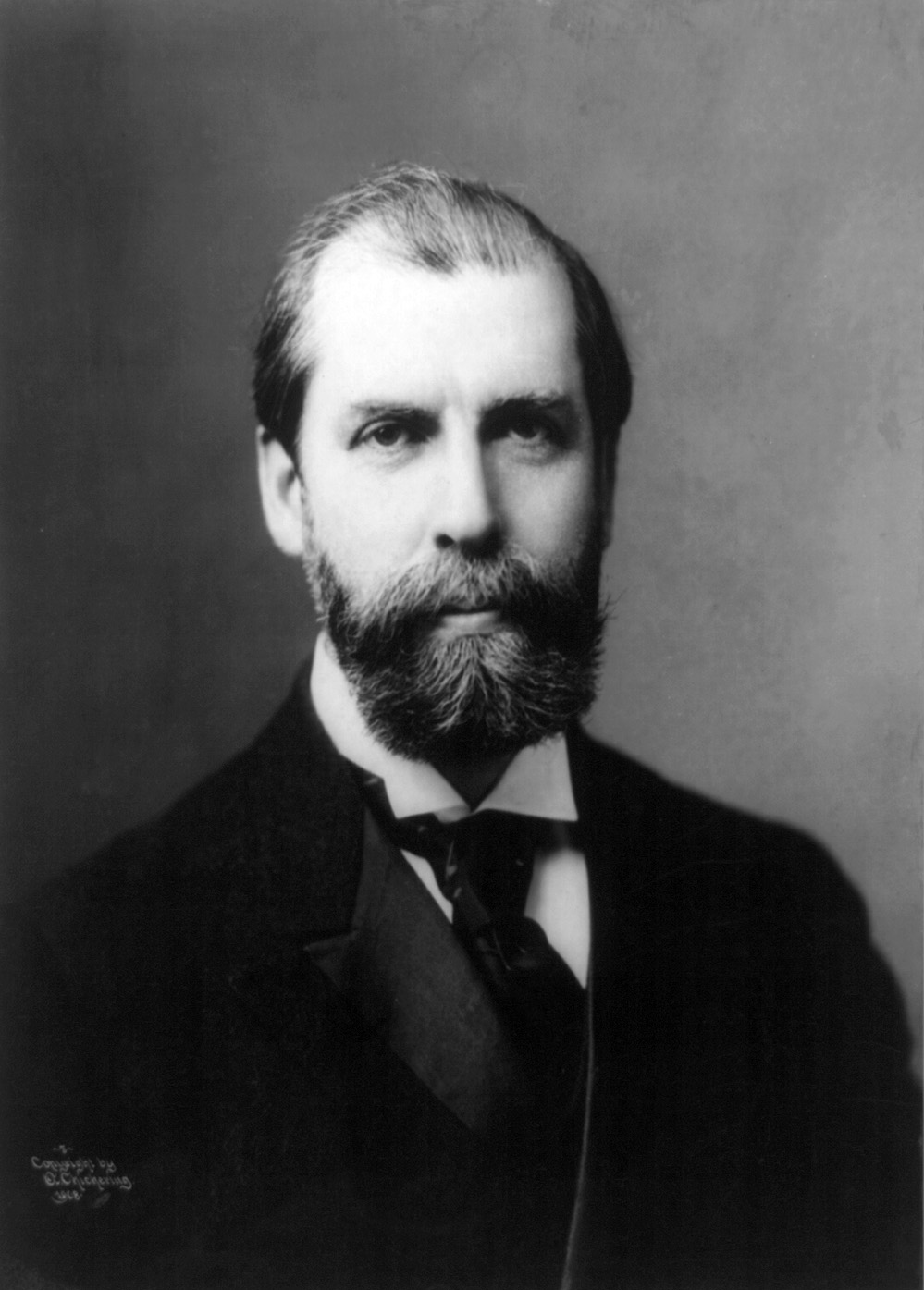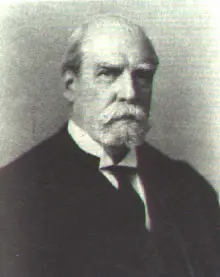Charles Evans Hughes
Charles Evans Hughes ( * April 11, 1862 in Glens Falls, Warren County, New York; † August 27, 1948 in Osterville, Massachusetts ) was an American politician and lawyer. He served as Governor of the State of New York, as Secretary of State of the United States, as a judge at the Permanent Court of International Justice and as Chief Justice of the Supreme Court of the United States.
Life
Hughes was a precocious child. At age six, he decided by the school that he found it boring to go off and created his own curriculum. With the consent of his parents, he practiced this curriculum at home. Shortly before his twelfth birthday his family moved to New York City, where he is now but went to public school and they also completed. Hughes was also educated in the beliefs of the Baptist movement.
He attended prestigious universities such as the Madison College (now Colgate University), and the later the Columbia Law School, he graduated from Brown University with honors. In order to finance his law studies, he taught at the age of 19 years ancient Greek, Latin and mathematics at the Delaware Academy.
From 1905, Hughes worked as a legal advisor to the Government of the State of New York and uncovered some corruption on. From 1907 to 1910 he held the office of governor. After Hughes was appointed to the Supreme Court, where he remained until 1916. From this office he stepped back in June after his nomination for the Republican candidate for the presidential elections in 1916, he almost lost in November against Woodrow Wilson.
As 1921 was Warren G. Harding elected president, called the Hughes as Secretary of State in his cabinet. During his four- year term he convened the Washington Naval Conference ( Washington Naval Conference), in which the geopolitical interests of Japan, Russia, Britain, France, Holland, Italy, Belgium, China and the United States were negotiated in the South Pacific. Also in the Cabinet of Calvin Coolidge, he was foreign minister until 1925.
Hughes also became known as the judge at the Permanent Court of International Justice earned in The Hague ( 1928-1930 ). The last stop of his career was the office of the Chief Justice of the United States, the highest judge in the country, a position he held until 1941. Hughes was in this function, a fierce opponent of President Franklin D. Roosevelt, who wanted the Supreme Court to fill with his people after he brought many of his New Deal legislation to case.
Charles Evans Hughes died in 1948. His son Charles Jr. also suggested a legal career, and held office from 1929 to 1930 as United States Solicitor General.









